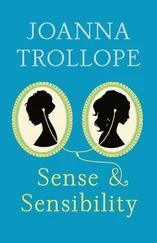He had thought, for the first few nights, that it didn’t feel right because he was sleeping on the sofa. He told himself that there was just something pretty weird about being on the sofa when your sister was through the ceiling in your bedroom and your bed. But, as the days wore on, he suspected that, even if Rosa were to surrender his bedroom, it wouldn’t now be the bedroom he had left only a few months before, and therefore the strangeness of the sofa didn’t belong to the actual sofa: it belonged to the situation.
The situation was, as far as Ben could see, that his childhood home had changed. He might know every corner and creak, but he knew them as he supposed he would know the similar characteristics of the secondary school where he had spent seven years of his educational life. You could know a thing, it seemed, you could feel a thing to be deeply, powerfully familiar, but at the same time you were keenly aware that this known and familiar thing was no longer in the least relevant to the place you were now at, never mind the place where you were going. When Ben put the key in the lock of the front door of the house, he knew precisely how to do it, but that was no comfort or pleasure because he didn’t, fundamentally, want to be doing it any more. It was as if the lock looked the same but had, in fact, changed its nature, just as the quirks of taps and light switches and cupboard doors had. It was like looking at a well-known face in a distorting mirror.
The same was true of his family. There were no surprises in any of them, except that they all seemed to him more shadowy. He initially supposed that this was because all of them were trying to deal with difficulties of one kind or another, which rendered them tired and preoccupied. Given everyone’s work schedules, no one saw very much of anyone else, but all the same, the household had no coherence about it any more and, instead of feeling in any way a unit, it felt like a collection of people living together without any real sense of binding unity. It was only after a few weeks, lying wakeful one night on the sofa and wishing for the hundredth time that it was even six inches longer, that it struck Ben that what was the matter with him was not really the sofa, or the accessibility of his family, but that he was missing Naomi.
Once he had considered this, he realised that he had never actually missed anyone before. He had never, all his growing up, been put in a situation of having to miss someone: no boarding school, no college years in the North of England, no opportunity to feel keenly the absence of someone important. And, once this painful and interesting revelation had broken over him, he could see that it was neither the house nor the family that had changed, it was him. He might only have been living with Naomi and her mother a short while, but it had been long enough to give him a taste of what it might – could – be like to live according to his own inclinations. Naomi’s mother, for all her rules and regulations, had unconsciously allowed him to take the first tentative steps towards independence.
The feeling of missing Naomi was, once acknowledged, extremely acute. It rendered him at once impatient with living in a temporary dossing-down way on his parents’ sofa and, at the same time, eager to mend fences with Naomi and to set about achieving what he now clearly and urgently wanted, which was a place of their own. Such a place, he could now see, would bring with it responsibilities of a kind he had once shrugged off as the dull concern of generations older than his, but he was sure he would not be daunted by that. Indeed, if that kind of obligation was the price to be paid for living with Naomi, then he would gladly pay it.
The difficulty was, how. Naomi’s texts had not suggested, in any way, that she was missing him as he was missing her. In fact, the brevity and scarcity of her communications might have led a fainter heart to think that she had definitively chosen an immediate future with her mother rather than her boyfriend. But Ben’s heart, buoyed up with his new self-knowledge, did not feel faint. It felt that, even if it did not succeed, it was going to make stupendous efforts first, before acknowledging even the possibility of failure. He would shower and shave, he decided, put on clean clothes, buy flowers for both Naomi and her mother – a significantly larger bunch for her mother – and take the tube, that very day, to Walthamstow.
The water in the shower changed abruptly from tepid to gaspingly cold. Edie, her eyes tightly shut against the shampoo cascading down her face, gave a scream. Then she gave another, a scream of rage this time, rather than shock. They had all had showers, of course, they had all showered and gone out, even Lazlo, and left her to do battle with the aftermath of their leaving. Also, she thought, stumbling out of the shower and fumbling about for a towel, to deal with an elderly boiler and a water tank designed for the needs of a small nuclear family who bathed by rota.
She found a damp towel and wrapped it tightly round her. Then she ran a basin of cold water and dipped her hair into it and rinsed her eyes. There was a perverse relief, somehow, in being able to cry because she had soap in her eyes, being able to blame some small, tangible element for the need to howl away to herself, wrapped in an already used towel, in the forlorn middle of a weekday morning. She straightened up a little and peered at herself in the mirror. Her hair hung in wet dark snakes. Her eyes looked as if they’d been buried. She looked, she decided, more like the embodiment of a state of mind than a human being. She reached out and pulled another dank towel off the pile on the chair and wound it round her head. Now she looked like a huge blue towelling thumb.
From downstairs, the doorbell rang.
‘Go away!’ Edie shouted.
It rang again, politely but firmly. Edie dropped the towel she had tucked round her armpits and clawed her way into Russell’s ancient bathrobe that was hanging on the back of the door. Then she went cautiously out on to the landing and pressed her forehead against the glass to see down into the street.
On the step directly below her a young woman was standing. She wore a dark suit and was carrying a briefcase and there were sunglasses perched on top of her head. Edie looked at the briefcase. It seemed familiar, familiar enough to picture it propped against the wall inside the front door. It was Ruth’s briefcase. Edie unscrewed the security bolt on the window and put her head out.
Ruth glanced up.
‘Edie,’ she said uncertainly.
Edie put her hand up to her immense blue turban. ‘Just – washing my hair—’
‘I’m sorry,’ Ruth said, ‘not to tell you I was coming, but Matt said you’d be in, and I—’ ‘Matt did?’
‘Yes,’ Ruth said. ‘Matt suggested I just come. When I said I wanted to’.
‘Wait,’ Edie said.
‘Look, if it really—’
‘Wait,’ Edie said. She slammed the window shut and tore off her turban. Then she ran downstairs. Arsie was sitting in the hall, affecting indifference to whoever had come. Edie picked him up and held him against her while she opened the door.
Ruth said at once, ‘I’m so sorry—’
‘Don’t be,’ Edie said. She stepped back. ‘It’s – well, I’m very glad to see you’.
‘Are you?’
Edie looked at her.
‘Why shouldn’t I be?’
Ruth put out a hand to touch Arsie.
‘Well, I thought you thought—’
A drip from Edie’s hair slid on to Arsie’s shoulder and he sprang from her arms.
‘I did think’.
‘Yes—’
‘But a lot’s happened and I – well, my thinking has shifted a bit. You look very smart’.
Ruth made a little self-deprecating gesture.
Читать дальше












